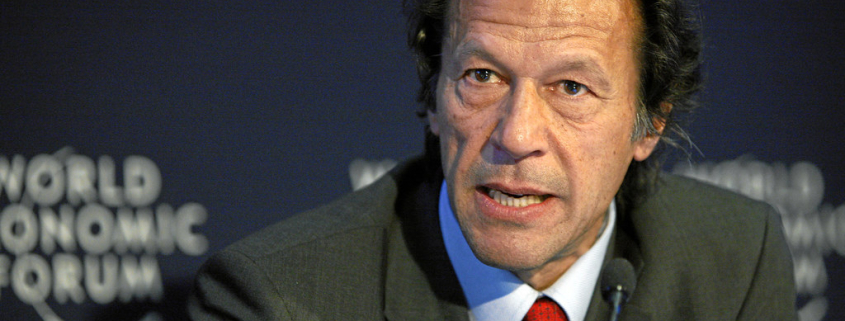Students discuss Pakistan Prime Minister assassination attempt

An assassination attempt Nov. 3 on former Pakistani Prime Minister Imran Khan shocked Pakistanis in the mainland, abroad and at USC. On Nov. 3, the Haqeeqi Azadi March, a protest against the current Pakistani government led by former Prime Minister Imran Khan, was interrupted when a gunman fired on an open container truck holding Khan and members of the Pakistan Tehreek-i-Insaf political party.
Khan, who serves as the chairman for PTI, sustained several bullet wounds in his leg and was taken to a hospital in Lahore for treatment. Fourteen PTI leaders and workers were injured and a PTI supporter was killed.
Ahad Kajani, a junior majoring in business administration, is one of many Pakistani American students at USC. Kajani said that though his first reaction to the assassination attempt was concern for the former Pakistani Prime Minister Imran Khan, he was not surprised by the attack.
“Overall, I feel that this is indicative of the problem that Pakistan’s facing in that you’ve got two sides of the rhetoric at play,” Kajani said. “You’ve got the individuals who want to use religion to incite violence, and then you’ve got others who might be trying to attempt some real change.”
Violence against Pakistan’s heads of state is not unheard of. Since the country’s independence and formation in 1947, Pakistanis saw the on-stage assassination of their first Prime Minister Liaquat Ali Khan in 1951, the hanging of former Prime Minister Zulfiqar Ali Bhutto in 1979, the mysterious plane crash that carried President Mohammad Zia ul-Haq in 1988 and a suicide bomb attack on former Prime Minister Benazir Bhutto in 2007.
Sahrish Baloch, a junior majoring in computer science and business, recalled hearing about the assassination of former Prime Minister Benazir Bhutto when she was younger.
“It was very shocking for a lot of Pakistanis abroad and in the country because she was a good leader,” Baloch said. “It’s usually a pattern amongst the politicians that the general public actually likes versus the high profile individuals working in the government that are corrupt.”
Earlier this year, former Prime Minister Imran Khan was removed from office through a vote of no confidence. Even after his removal, Khan has maintained a strong support base in Pakistan and overseas.
“Imran Khan didn’t have a political upbringing as other politicians do. He started off in cricket and so a lot of people knew him from then,” Baloch said. “He slowly worked his way into politics and people have seen that because he’s been in stardom pretty much his entire life. They’ve seen his reputation, they’ve seen his character, and it’s a good character.”
Abeerah Siddiqui, a junior majoring in environmental science and public health and president of the USC Pakistani Student Association, said the political climate in Pakistan is very unstable, and it is possible that politicians fear Khan will return to his position in government.
“It’s very much based on what the politicians want. I don’t think they look a lot at what the people of the country need,” Siddiqui said, “It runs based on how the politicians want to run the country and what benefits they see fit for themselves.”
Khan and PTI leaders blame the Pakistani government and military leaders for the attempt on his life, but these allegations remain unproven. Current Pakistani Prime Minister Shehbaz Sharif publicly condemned the attack and directed the Interior Minister for a report about the incident.
Despite the tumultuous situation Pakistan is facing, Kajani said it’s important that people do not think of Pakistan as just another country facing corruption.
“The issue is so much deeper than that,” Kajani said. “It’s about a country that’s struggling with a sense of national identity rather than just corrupt leaders. It’s about a country that’s trying to find itself.”
Kajani believes that the issues of polarity seen in Pakistan are comparable to the United States.
“You take Punjab and Sindh, like how different these places are,” Kajani said. “It’s kind of similar to the U.S., where we’ve got vastly different cultures living in the same country trying to figure out how to move forward.”
Siddiqui said Pakistan’s political and environmental challenges — the country experienced mass flooding this fall , partially due to climate change — should not be brushed off.
“We need to pay more attention,” Siddiqui said. “People tend not to worry about it so much when it’s not directly impacting them.”
Since Khan’s removal from office in April, the former prime minister has led dozens of rallies and his supporters continue to organize protests in hopes that his position will be reinstated.
“I was really disappointed when he was kind of thrown out of office,” Kajani said. “I do see him trying to come back in, so I guess we’re going to see.”

